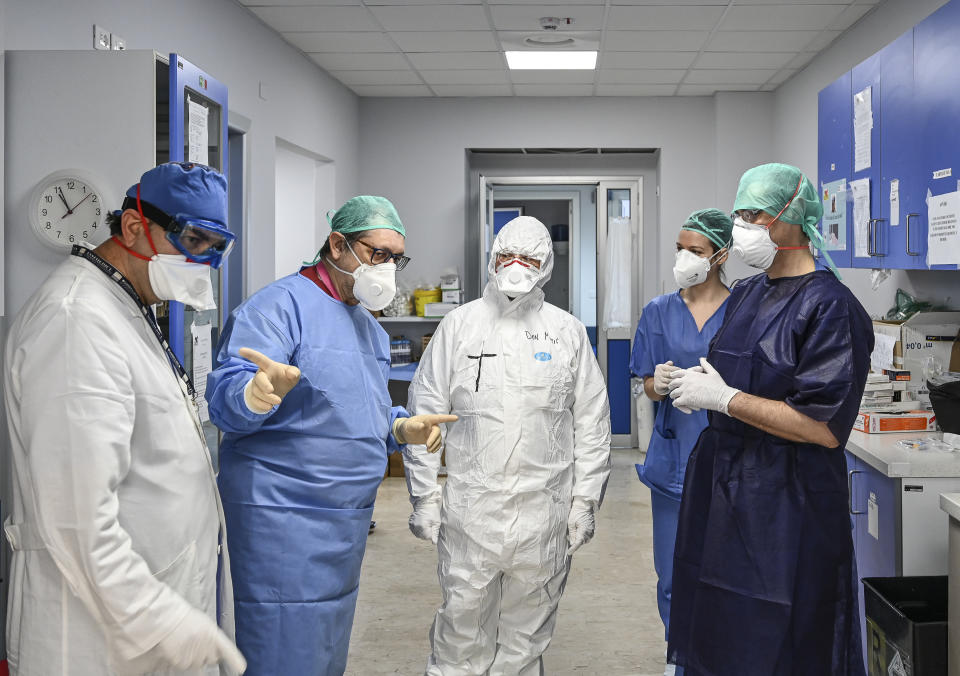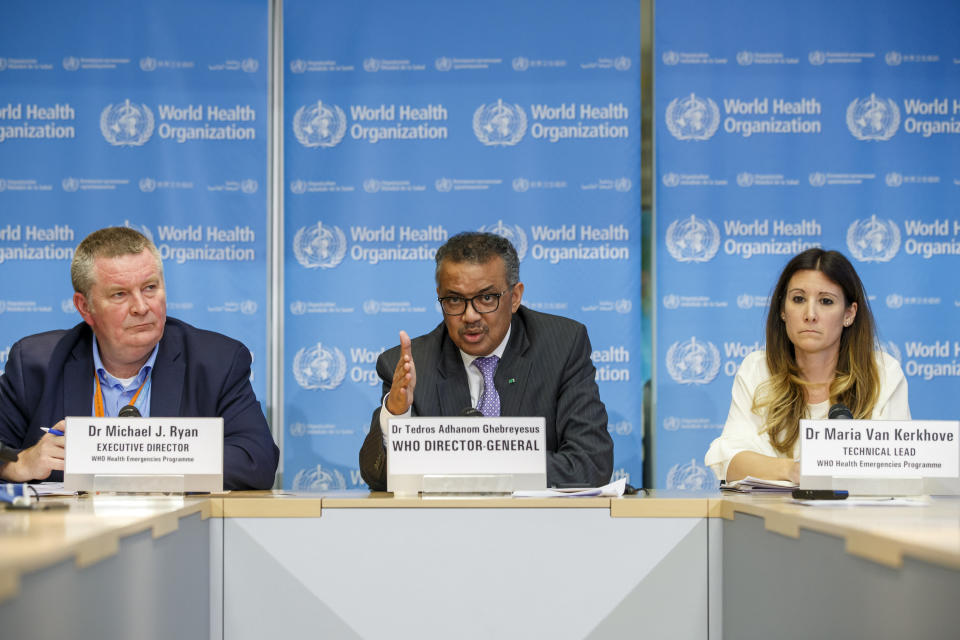Coronavirus making more healthy people in their 30s and 40s severely ill, warns WHO

Experts have warned more people in their 30s and 40s are becoming seriously ill after being infected with coronavirus.
COVID-19 has mostly killed older people or those with underlying medical conditions but the World Health Organisation (WHO) has warned other age groups are increasingly being affected.
Dr Maria van Kerkhove, a WHO epidemiologist, said: “What we really need to be focusing on right now is what is the age profile of people who are in ICU (intensive care units).
“We are seeing more and more individuals who are of the younger age group - in their 30s, in their 40s, in their 50s - who are in ICU and who are dying (in Italy and China).
She added: “But we have some time to go before we can really understand what mortality looks like across different countries so I would urge you to take those mortality rates with caution when comparing across countries.”

WHO said on Friday medical masks should be prioritised for health workers, but it opened the door to greater public use of homemade masks or other mouth coverings as a way to reduce the spread of the coronavirus.
Latest coronavirus news, updates and advice
Live: Follow all the latest updates from the UK and around the world
Fact-checker: The number of COVID-19 cases in your local area
6 charts and maps that explain how COVID-19 is spreading
It said there was some possibility of airborne transmission of the virus that has now infected more than one million people and killed 50,000 people worldwide since emerging in China last December.
Dr Mike Ryan, the WHO’s top emergencies expert, said: “We must preserve medical surgical respirator masks for our frontline workers.
“But the idea of using respiratory coverings or mouth coverings to prevent coughing or sneezing projecting disease into the environment and towards others ... that in itself is not a bad idea.”
The main driver of the pandemic was still believed to be sick people with symptoms who were coughing and sneezing and contaminating surfaces or other people.
Dr Anthony Fauci, the director of the National Institute of Allergy and Infectious Disease who is top US infectious disease official, said on Friday Americans should cover their face if they have to go in public, but they should still stay isolated as much as possible.
Dr Ryan acknowledged a “very important and healthy debate” on the wearing of masks.
He said that if used, they should be part of a comprehensive strategy and would not negate the need for handwashing and social distancing.
Dr Ryan added: “So we can certainly see circumstances in which the use of masks, both homemade or cloth masks, at community level may help in an overall comprehensive response to this disease.”
Coronavirus: what happened today?
Click here to sign up to the latest news, advice and information with our daily Catch-up newsletter


